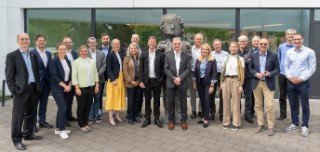
On Friday, June 21, 2024, the 16th meeting of the Fraunhofer MEVIS Advisory Board took place in Bremen under the direction of Prof. Hans Maier, Chairman of the Advisory Board.
more info
On Friday, June 21, 2024, the 16th meeting of the Fraunhofer MEVIS Advisory Board took place in Bremen under the direction of Prof. Hans Maier, Chairman of the Advisory Board.
more info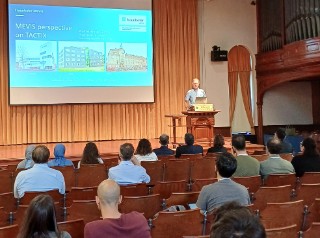
The EU-funded project TACTIX was kicked off successfully by a joint workshop held in Istanbul at Bogaziçi University (BOUN) on June 4 and 5. Approximately 40 members and students from the Faculty for Biomedical Engineering attended the official project kickoff, followed by the first meeting of the project's General Assembly to plan the next three years of work packages.
more info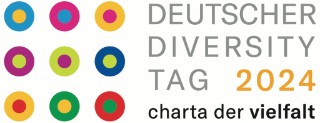
As an institute working with human medical data from all over the world, Fraunhofer MEVIS relies on diversity as an important asset. To raise awareness of diversity and unconscious bias and increase the visibility of diversity at the institute, Fraunhofer MEVIS is celebrating German Diversity Day 2024 on May 28 with on-site and online activities.
more info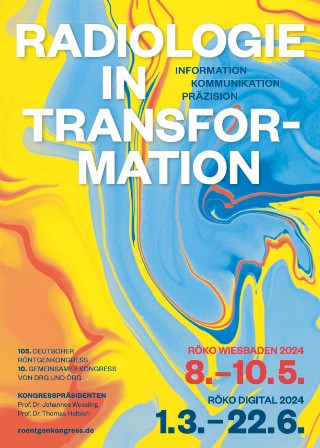
From May 8 to 10, 2024, the radiology community will gather at the 105th German Radiology Congress, short “RÖKO”, in Wiesbaden, Germany. The motto of this year’s congress is “Radiology in Transformation” and will focus primarily on AI (artificial intelligence) applications. Fraunhofer MEVIS has contributions to several sessions of the RÖKO Wiesbaden and RÖKO Digital.
more info
Fraunhofer MEVIS is once again participating in Girls' Day on April 25 with an extensive program on the topic of “Digital Medicine”. The aim is to arouse the interest of around 20 participating schoolgirls from the 7th grade onwards in scientific content, to convey this in a practical way and to show them perspectives within the STEM subjects.
more info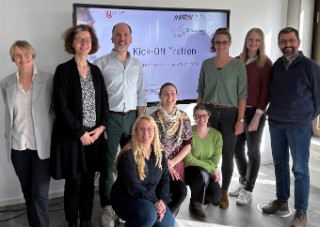
Making the best possible use of mathematical results and giving society a better idea of the importance of mathematics for innovation and for our everyday lives—these are the goals of a sustainable model region for industrial mathematics (MOIN) in Bremen, Bremerhaven, and Osterholz county. The aim is to establish industrial mathematics as a driver of innovation in business and industry, to raise public awareness of industrial mathematics, and to make mathematics attractive again in schools. The #MOIN Campus–Nachbarschaft–Sichtbarkeit (which translates as #MOIN Campus-Neighbourhood-Visibility) sub-project aims to improve the reputation of mathematics among the public and to communicate the benefits of mathematics to young people and their teachers in particular. Activities take place on campus and in the neighbourhood, as well as at the young people’s schools.
more info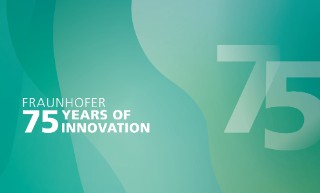
On March 26, 1949, the Fraunhofer-Gesellschaft was founded in Munich as a non-profit organization. Three quarters of a century later, it is one of the world's leading organizations for application-oriented research with more than 30,000 employees and 76 institutes not only in Germany but also in other parts of the world. They are all united by one guiding principle: to develop innovations for the future from ideas.
more info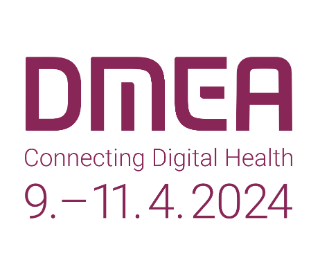
DMEA, Europe's leading event for digital health, brings together exhibitors and industry experts from 9 to 11 April 2024 to present and discuss the latest developments, technologies and solutions for digitalization in healthcare. Our experts look forward to seeing you at the Fraunhofer stand, Hall 2.2, Stand D-108.
more info
The potential benefits of using AI technology in healthcare are enormous. However, there are significant practical, technological, and legal implications that must be considered to protect patients. The BOX is an interactive installation that explores the “black box” aspect of AI technology, posing the question: If we feed AI with incomplete or biased data - can we then expect it to make reasonable suggestions?
more info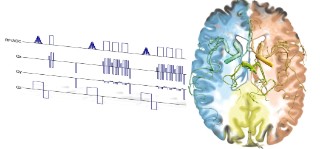
Fraunhofer MEVIS aims for utilizing compact MRI devices for research and education. Lecture “MRI Sequence Composition Beyond Academia” and workshop “Prototype your own MRI Sequence,” 4th of April, in cooperation with the Institute for Design Informatics (IDI), University of Edinburgh.
more info
The aim of the BVM Workshop 2024 (German Conference on Medical Image Computing), which takes place in Erlangen from March 10 to 12, is to exchange current research results and to facilitate in-depth discussions among scientists, industry, and users from medicine and technology. The workshop offers young scientists in particular a platform to present their work.
more info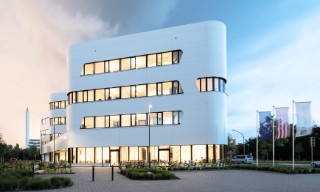
The Fraunhofer MEVIS institute building on the campus of the University of Bremen has been retrofitted with a photovoltaic system, which has now gone into operation. As was previously the case with the commissioning of five charging points for electromobility, Fraunhofer MEVIS is thus making a contribution to reducing its ecological footprint and strengthening sustainability.
more info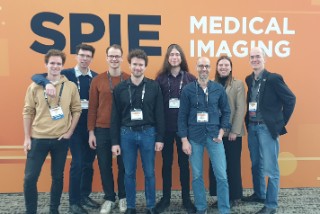
Artificial intelligence and computer-aided support for diagnosis and therapy in digital medicine—these are the topics Fraunhofer MEVIS is presenting at the International Society for Optics and Photonics (SPIE) Medical Imaging conference, which is held in San Diego, California, from February 18 to 22. This year, the Fraunhofer Institute for Digital Medicine MEVIS is again well represented at the renowned conference with numerous scientific and educational contributions.
more info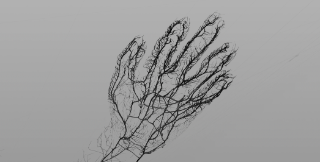
Conclusion of an innovative art, science, and technology collaboration on the human body by the artist collective Marshmallow Laser Feast and Fraunhofer MEVIS.
more info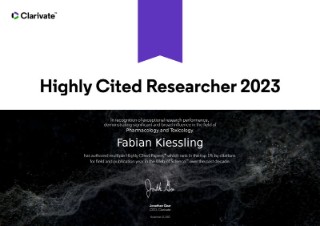
Prof. Dr. med. Fabian Kiessling has been recognized by Clarivate as a Highly Cited Researcher 2023 in the Pharmacology and Toxicology category. This is the fifth consecutive year he has been on the Highly Cited Researcher list, having already been recognized in the same category in 2022 and 2021 as well as in the Cross-Field category in 2019 and 2020.
more info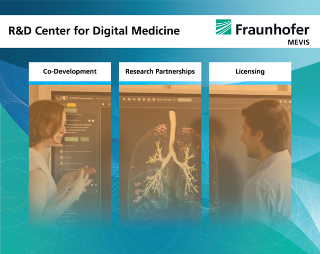
At this year’s annual RSNA meeting (Radiological Society of North America) in Chicago, Fraunhofer MEVIS presents, among others, the following promising innovations for AI-supported medicine: SATORI which helps to conduct multicenter studies and OncoChange which supports the follow-up of tumor treatments.
more info
Great hopes, but also weighty concerns: Currently, there is a lively debate about algorithms that can learn, especially in medicine where AI systems are supposed to help detect diseases and identify optimal future therapies. This raises important questions: How do the algorithms arrive at their results and how can they be verified? Who develops these new technologies that affect the health of so many diverse people? And who creates the stories and images that represent the new digital solutions in medicine? The Scottish-based creator Fiona Smith is exploring this field of tension with an elaborate art project that she will develop as part of the STEAM Imaging V residency program. Her idea: In her interactive installation “The Box”, the audience will feed an AI with data and then be able to observe how the machine reacts in an audio-visual display.
more info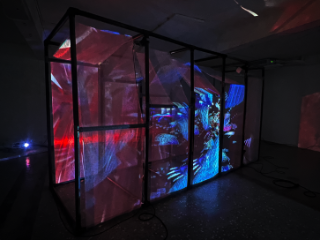
Whose Scalpel 2.0 is an audio-visual art performance that explores the intersection of technology and sensory perception. In this piece, the artist's cardiac MRI data are presented through technological devices, highlighting the progression of medicine and its cultural implications. During the live performance, the artist lets real time heart rate data from the artist, a dancer, and the audience influence the presentation and experience of images and sounds. This sensor-based interactive design fosters a multilayered perception of the body, prompting contemplation on body concepts and technology's role in our lives.
more info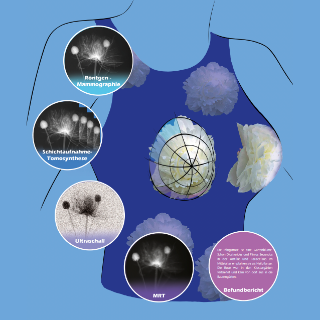
School students, their friends, mothers, and scientists exchange ideas on breast health. On the occasion of Breast Cancer Awareness Month, the BREAST HEALTH AWARENESS workshop took place at the Institute on 9 October – an event by women for women with scientists, pupils from the partner school Schulzentrum Walle, their friends, mothers, and teachers.
more info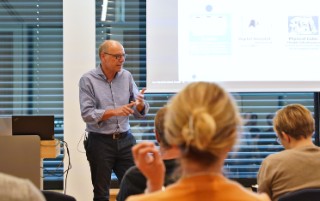
In an engaging lecture by the cardio expert and professor Gerhard Hindricks on August 30th, approximately 70 attendees simultaneously gained insights into pioneering approaches in cardiac medicine and into the possible routs toward securing healthcare in remote or underserved regions. Because those who deal with cardiovascular diseases cannot avoid taking a global epidemiological perspective: Diseases of the heart and vessels are the leading cause of death globally and affect various geographical locations, age groups, and socioeconomic structures.
more info